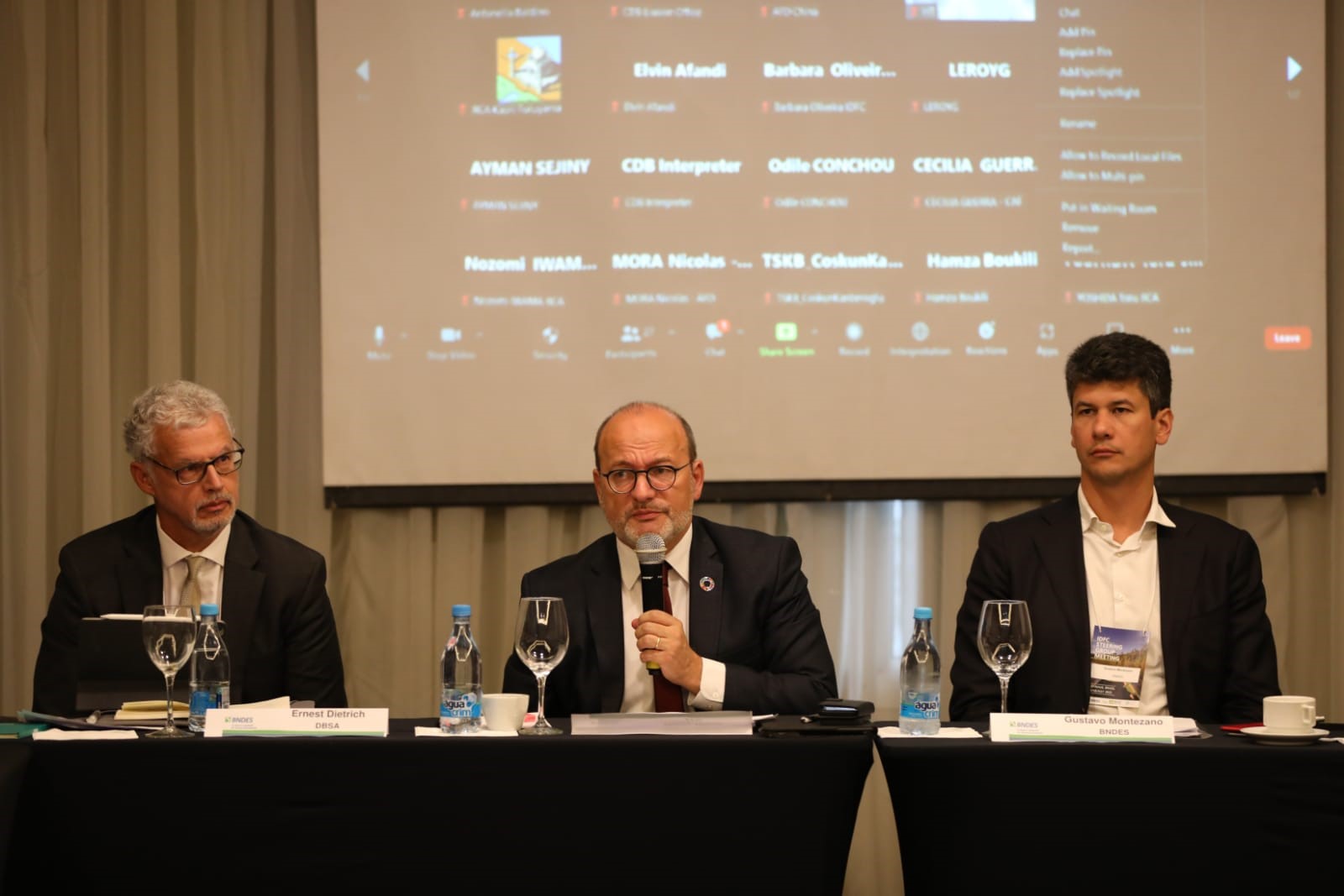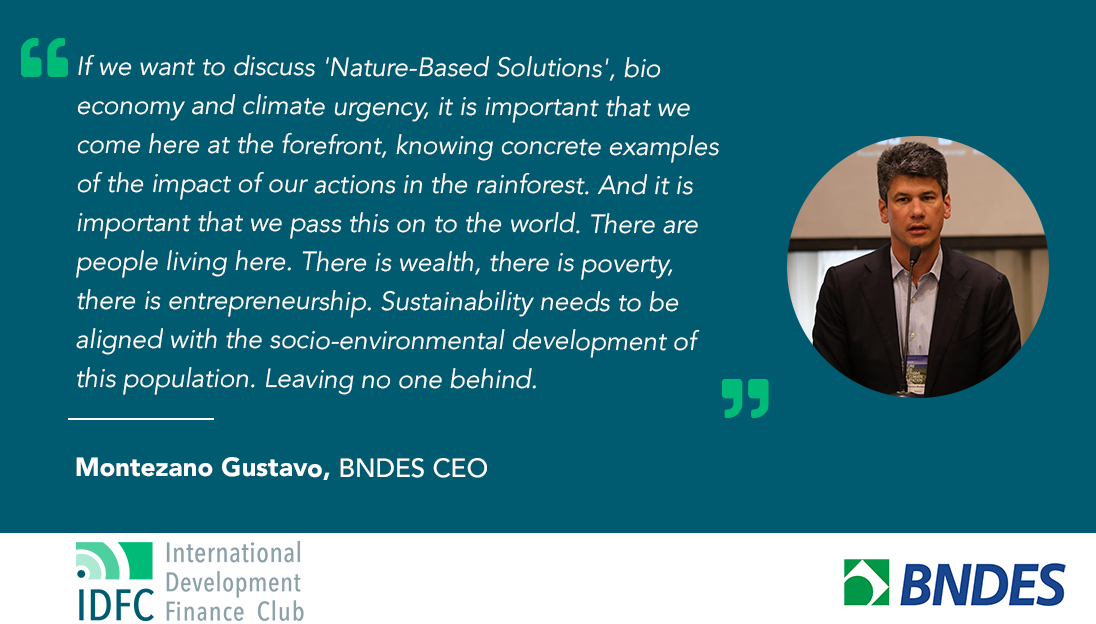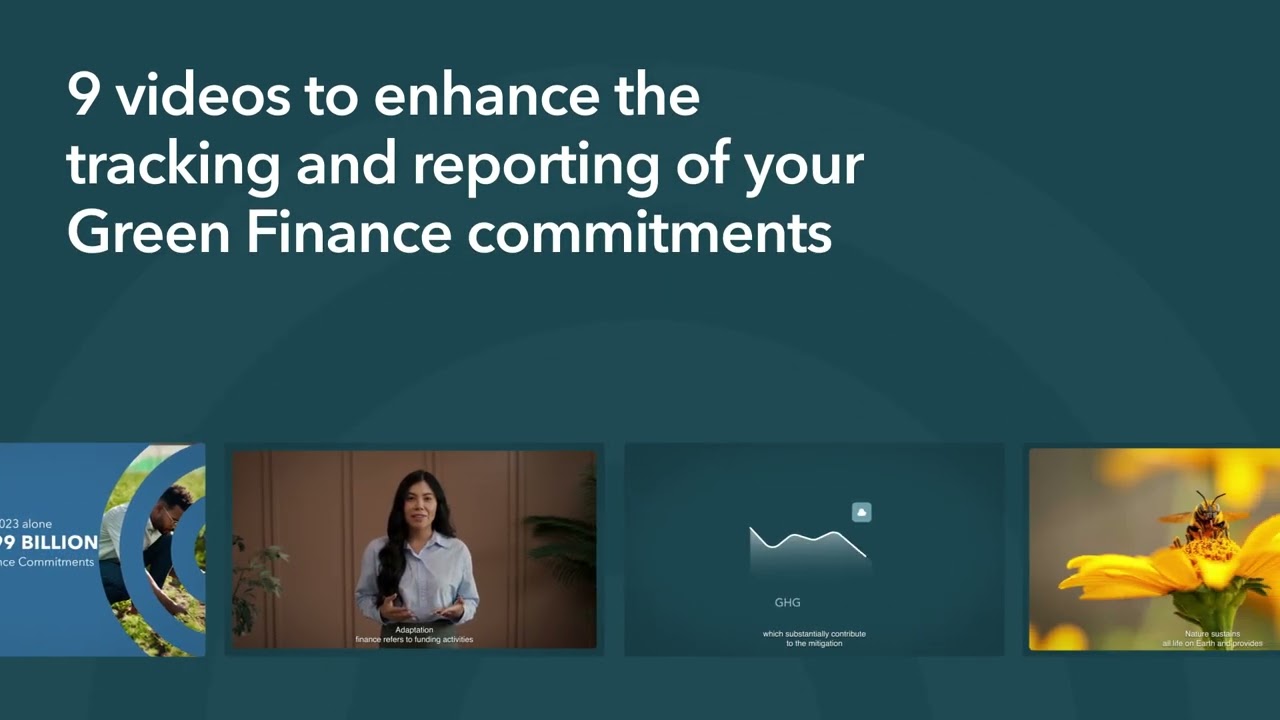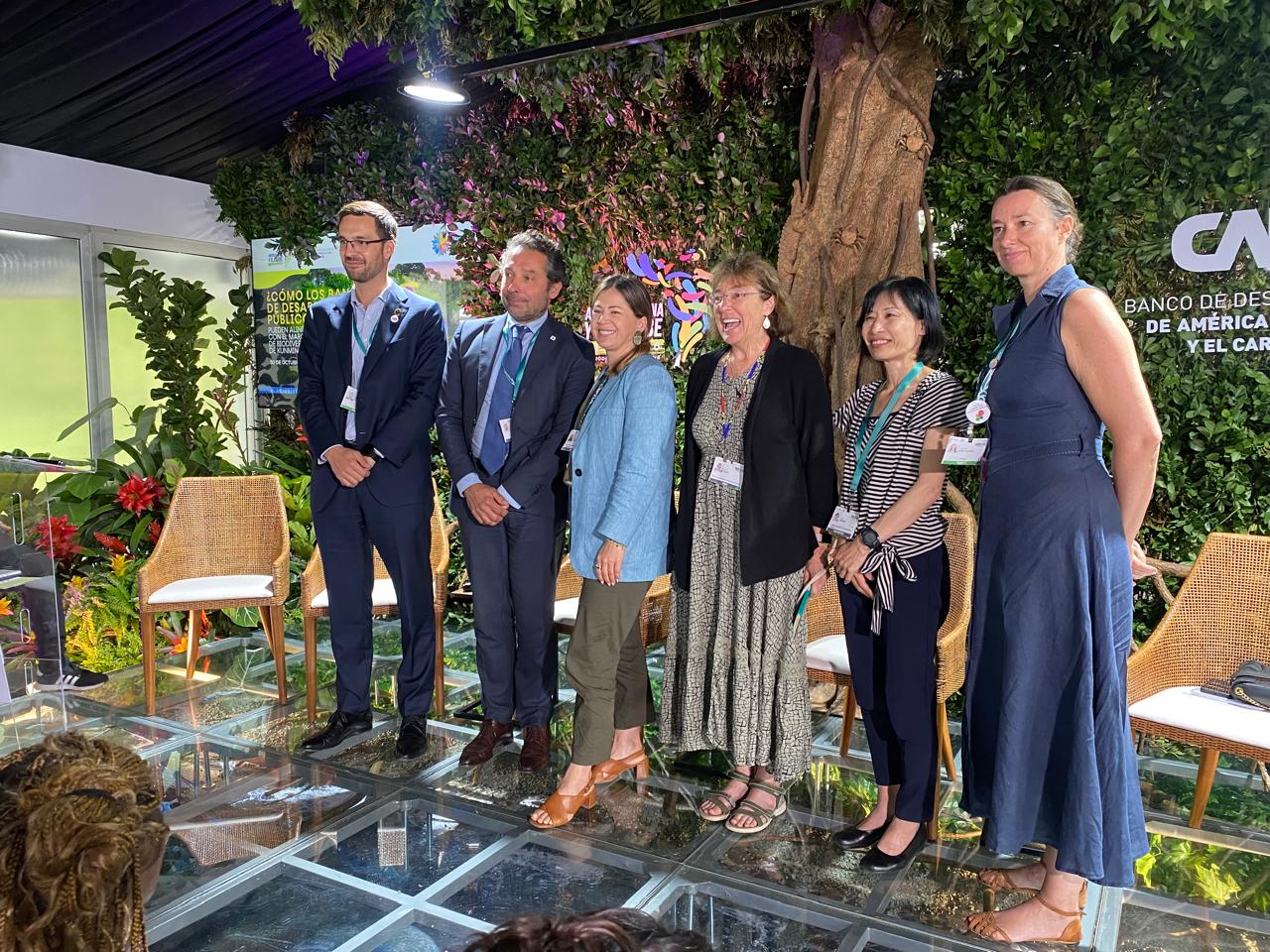
Throwback to our 2022 Steering Group Meeting hosted by BNDES in Manaus, Brazil
8 July 2022Publication of a Biodiversity Toolbox introducing the conceptual foundations for understanding the role of biodiversity for financial institutions. This functional document is mostly addressed members of the IDFC, their clients and any other financial institution willing to include biodiversity in its operations.
Co-organization – between BNDES and the IDFC Climate Facility – of a Technical Workshop with high-level representatives and experts from IDFC members and partners (NGOs, Universities, Climate funds) to unpack the concept of on Nature-Based Solution for Adaptation
This year IDFC Steering Group Meeting hosted by BNDES in Manaus, Brazil, June 30 and July 1st 2022 – During this meeting happening once a year, The International Development Finance Club (IDFC) of now 27 leading national and regional development banks, gathered in an hybrid manner, its Steering Group to speak about the perspectives and achievements of the Club and on Biodiversity more specifically both locally and within the work of all the members.
The Steering Group, comprised of the Chairperson and the Vice-Chairpersons elected from among the IDFC Members for two-year periods, meets at least once a year to review the Club’s work on the priority themes of climate and biodiversity finance, gender equality, and alignment with the Sustainable Development Goals (SDGs), in preparation for the annual IDFC meeting, and to positively contribute to and voice the role of public development banks at upcoming international meetings, including COP27 and COP15.
The 2-day agenda put the emphasis on biodiversity finance, recognizing the urgent need for mobilizing additional resources while reducing or redirecting those causing harm to biodiversity. IDFC members, as a group of public development banks, can play an influential role by offering a renewed approach in conducting their business, mainstreaming biodiversity in their funded operations and supporting biodiversity positive investments.
On this occasion, following the commitments made in its first position paper on biodiversity in 2020, the Club announced the exclusive publication of a Biodiversity Toolbox on integrating biodiversity into strategies and operations of Public Development Banks. This toolbox introduces the conceptual foundations for understanding the role of biodiversity for financial institutions. It is designed to help navigate the wealth of information in this dynamically developing field, for both newcomers to the topic and established professionals. It mostly addresses members of the IDFC, their clients and any other financial institution willing to include biodiversity in its operations. At its core, it provides a stepwise approach to integrate biodiversity concerns into the strategies and operations of development finance institutions. Each step is then illustrated with a selection of available methods, tools and examples.
Click here to read more
In its role in supporting the scaling up of climate and biodiversity convergence, the Club – thanks to the support of the IDFC Climate Facility – and BNDES – organized a technical workshop the previous day, on June 29, with the objective to build the capacities of its members on Nature-Based Solution for Adaptation – also called Ecosystem-based Adaptation (EbA).
This workshop brought together high-level representatives and experts from Club members and partners, including WWF, Oxford University, IUCN, GEF and French GEF, GCF, IKI, UNEP, SANBI and was an opportunity:
- to build a common understanding and framework for applying EbA,
- to exchange on the updated scientific knowledge,
- to take stock on the international agenda and on past and current operations,
- to discuss the role IDFC and national development banks may play in cooperation with the main stakeholders to foster and mainstream EbA,
- to elaborate and develop an initiative to proof the concept at a large scale.
This 2-day meeting was the opportunity to visit the Museu da Amazônia (MUSA), belonging to the National Institute for Amazonia Research (INPA), whose objective is to raise public awareness of the close links between our societies and natural ecosystems and to better understand the importance of preserving and enhancing Amazonian forest for the benefit of all. A panel was organized at ExpoAmazônia BIO&TIC to create a discussion between IDFC members, as Public Development Banks, and local entrepreneurs in order to highlight business opportunities linked to the bio-economy.
Finally, this meeting was the opportunity to remind the exclusive number referenced in last year Green Finance Mapping, a milestone deliverable from the Club, where IDFC members reported $185 billion of green finance, including for the first time a total of $14 billion investments in biodiversity, and to discuss the contributions and positioning to 2022 main events: COP15 to support the future Global Biodiversity Framework, the IDFC Pavilion on COP27 happening in Sharm Al Sheikh, Egypt from November 7 to 18 2022, and the contribution to the Finance In Common Summit (FiCS) happening in Abidjan, Ivory Coast from October 19 to 20 2022.
Ideally, the toolbox should be useful for both newcomers to the topic and established professionals. At its core, it provides a stepwise approach to integrate biodiversity concerns into the strategies and operations of development finance institutions. Each step is then illustrated with a selection of available methods, tools and examples.
The tools presented are merely a selection, as there are new advancements all the time. That is why this toolbox is supposed to be a living document that will be a reference and a source of inspiration for its users and facilitate a continuous exchange of knowledge and experience among IDFC members.

Gustavo Montezano BNDES CEO
“If we want to discuss ‘Nature-Based Solutions’, bioeconomy and climate urgency, it is important that we come here at the forefront, knowing concrete examples of the impact of our actions in the rainforest. And it is important that we pass this on to the world. There are people living here. There is wealth, there is poverty, there is entrepreneurship. Sustainability needs to be aligned with the socio-environmental development of this population. Leaving no one behind”.
“This not only demonstrates how relatively new concepts such as NBS have become a priority around the world, but also the willingness and humility to learn. And for us at BNDES, an essentially national bank, exchanging ideas, tools, successes and mistakes is critical for our decision-making”.
Discover similar articles

The Common Principles: a new series of 9 e-learning videos
Biodiversity
The IDFC Club was present at COP16 Colombia to take part in key discussions on biodiversity!
Biodiversity
